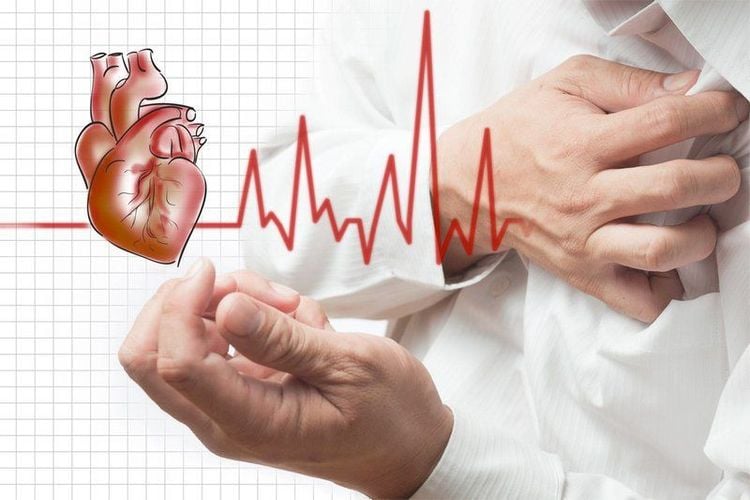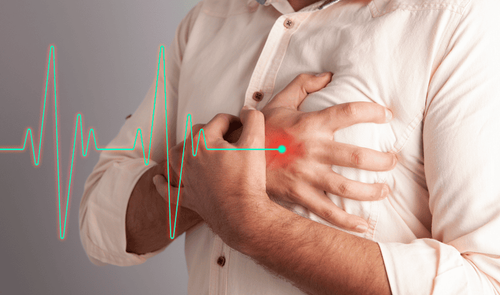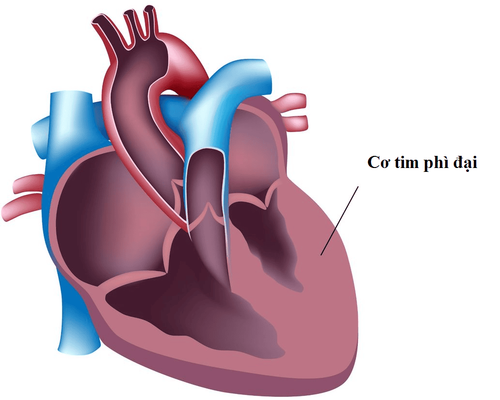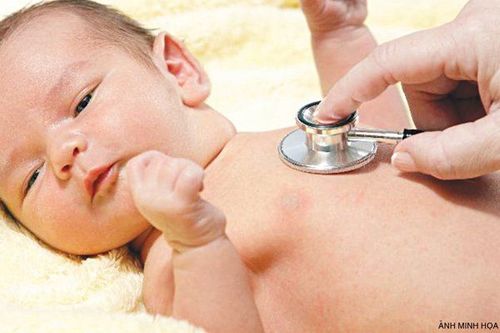This is an automatically translated article.
Article written by BS. Dao Thi Mai Lan, Vinmec
Stem Cell Research Institute and Gene Technology
Brugada syndrome is a disease of the heart's electrical dysfunction leading to arrhythmias. People with Brugada syndrome have an increased risk of sudden death at an average age of 40 years, there are also cases of children under 1 year of age having sudden death during sleep. What are the symptoms of the disease and how is it treated?
1. What is Brugada syndrome?
Brugada syndrome is an inherited disorder that causes abnormalities in the electrical activity of the heart. Brugada syndrome was first described by Spanish physician brothers Pedro Brugada and Josep Brugada in 1992. Then the genetic basis of Brugada syndrome was discovered in 1998.
Brugada syndrome It is a disorder of the heart's electrical activity that leads to arrhythmias. The normal functioning of the heart is triggered by electrical impulses from cells in the right atrium. In Brugada syndrome, electrical impulses are generated abnormally, causing the heart to contract too early, thus not supplying enough blood to the body. Arrhythmias can happen suddenly, so the person can faint or have a heart attack that causes sudden death. Brugada syndrome was previously described as a syndrome of sudden unexplained nocturnal death.
People with Brugada syndrome have an increased risk of sudden death at an average age of 40 years, there are also cases of children under 1 year of age having sudden death during sleep.
The frequency of Brugada syndrome in the population has not been precisely determined, estimated at 5 per 10,000 people worldwide. Asians, especially Japanese and Southeast Asian populations, have a higher incidence of Brugada syndrome.
Brugada syndrome is found in both men and women, but the incidence is 8-10 times higher in men than in women. The average age of sudden death was 41, the age of diagnosis was 2 days - 84 years old.

2. Symptoms
Brugada syndrome often has no obvious symptoms, many patients with Brugada syndrome do not know they have the disease. Symptoms may begin to become apparent around the age of 40. Symptoms of Brugada syndrome are often similar to other cardiac arrhythmias with signs such as: dizziness, fainting, shortness of breath, especially at night, irregular heartbeat or palpitations, extremely fast heartbeat or arrhythmia, convulsions.
3. Diagnosis of Brugada's syndrome
Diagnosis of Brugada syndrome through clinical evaluation, including electrocardiographic imaging and family history information. Genetic testing can diagnose 30-35% of cases. SCN5A gene analysis is commonly performed to determine the genetic cause of the disease (in about 25% of cases).

4. Cause
Possible causes:
Brugada syndrome can be caused by mutations in several genes, of which the best known is the SCN5A gene (accounting for 15-30% of cases). The SCN5A gene encodes for the sodium channel in cardiac muscle cells. The sodium channel is essential for the maintenance of a normal heart rhythm. Mutation in the SCN5A gene alters the structure and function of the transport channel, reducing the influx of sodium ions into cells, thereby altering the way the heart contracts, causing arrhythmias. Mutations in several other genes can also be the cause of Brugada syndrome. Currently, more than 250 mutations in 18 genes associated with Brugada syndrome have been reported. These genes are also involved in the production of proteins that ensure the function of sodium, potassium, and calcium transporters in cardiomyocytes. Although many genetic variations have been reported, 65-70% of cases still have no known genetic cause. The gene mutation that causes Brugada syndrome is autosomal dominant, which means that just one copy of the mutated gene is enough to manifest the disease. In most cases, patients inherit the disease from one or more parents. In some cases Brugada Syndrome may be due to an acquired cause. For example, the use of certain drugs such as: drugs that change the heart rate, blood pressure drugs, antidepressants and tranquilizers, cocaine use... In addition, people with high calcium, potassium and sodium levels in Brugada syndrome can also be present in the blood
5. Risk factors
Family history: If there is a family member with Brugada syndrome, you are also at risk for the disease; Male gender: Male sex is more likely to have Brugada syndrome than female; Race: Brugada syndrome is more common in Asians than in other races; Fever: Fever is not the cause of Brugada syndrome, however fever can irritate the heart and cause fainting or sudden cardiac arrest, especially in children.

6. Methods to cure Brugada's syndrome
Currently there is no cure for Brugada syndrome, only methods to protect the patient from possible consequences.
Implantable defibrillator (ICD) can help prevent sudden death in patients. A defibrillator is implanted in the heart to detect irregularities in the heart rhythm, when it detects abnormalities, it stops the arrhythmia by pacing or delivering a shock to return the heart to a rhythm. normal tune.
The use of drugs can also help prevent arrhythmias in Brugada syndrome.
Another option is to surgically remove the part of the heart muscle where the arrhythmia is generated.
To protect cardiovascular health in general and detect early signs of cardiovascular disease, customers can sign up for Cardiovascular Screening Package - Basic Cardiovascular Examination of Vinmec International General Hospital. The examination package helps to detect cardiovascular problems at the earliest through tests and modern imaging methods. The package is for all ages, genders and is especially essential for people with risk factors for cardiovascular disease.
Vinmec is currently one of the most prestigious cardiovascular medical treatment facilities in Vietnam, with a team of highly qualified, experienced doctors who are regularly trained and transferred technology from foreign. Vinmec has successfully treated and operated many difficult cardiovascular diseases.
Please dial HOTLINE for more information or register for an appointment HERE. Download MyVinmec app to make appointments faster and to manage your bookings easily.














